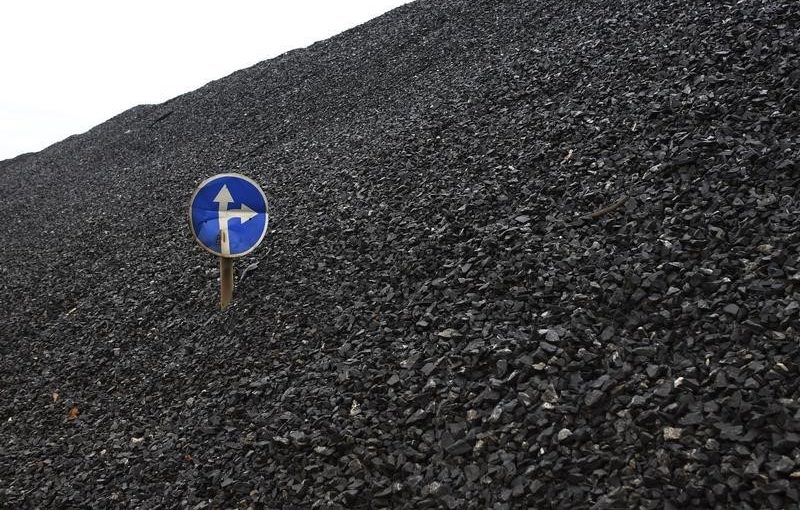World Health Organization members vote in favour of global pandemic agreement
China coking coal hits 13-mth peak on firmer demand, tighter supply

A road sign stands in a pile of coal near the southeastern city of Ufa some 1350 km (839 miles) from Moscow October 18, 2007. File photo: Reuters /Ilya Naymushin
Chinese coking coal futures climbed to their strongest in more than a year on Wednesday as Beijing’s flexible approach to industrial production curbs fuelled demand with supply restrictions also supporting the steel-making raw material.
The rally in coking coal spread to iron ore, which rose to a seven-month peak, and coke which jumped nearly 2 percent. Steel prices extended recent gains to hit their highest in four weeks.
China has ditched a blanket curtailment of production by industrial plants this winter, including steel mills, instead allowing provinces to set their own output restrictions based on emission levels. It’s the second straight winter that China is implementing the curbs as part of its battle against pollution.
“This means that overall demand for steel-making raw materials will be more than expected even though there will be some constraints,” said Richard Lu, analyst at CRU consultancy in Beijing. “So that’s providing some upside for prices.”
The most-traded January coking coal contract on the Dalian Commodity Exchange jumped as much as 3.5 percent to 1,412.50 yuan ($204) a tonne, the highest since September 2017. It settled at 1,399.50 yuan, up 2.5 percent.
Coking coal supply in China is also tighter as winter approaches with the transport of thermal coal – needed to fuel power plants – being given priority over coking coal, said Lu.
“We have also seen supply restrictions from Australia and Mozambique. The supply of metallurgical coal in the global seaborne market is quite tight at the moment,” he said.
Australian coal miner Peabody Energy has issued force majeure notices to its customers after it reported a fire in parts of its North Goonyella mine in Queensland last month. Force majeure means a buyer or seller cannot fulfil their obligations because of outside forces.
Iron ore futures rose 2.7 percent to end at 523.50 yuan a tonne, a tad off the day’s peak of 524 yuan, the highest since March 8. Coke jumped 1.8 percent to 2,513 yuan.
Construction steel product rebar on the Shanghai Futures Exchange closed up 1.5 percent at 4,197 yuan a tonne, just off its session high of 4,198 yuan, its loftiest since Sept. 19.
It marked the sixth session of gains in seven for rebar which has been aided by ongoing production curbs in China’s top steel-making city of Tangshan.
Tangshan ordered mills to cut output by half from Oct. 11 to 18 due to forecasts of adverse weather, while the province of Hebei, where Tangshan is located, last week started its environmental inspections of industrial plants.
($1 = 6.9194 Chinese yuan)













Leave a Reply
Be the First to Comment!
You must be logged in to post a comment.
You must be logged in to post a comment.